
-
Find the right food for your petTake this quiz to see which food may be the best for your furry friend.Find the right food for your petTake this quiz to see which food may be the best for your furry friend.Featured products
 Hypoallergenic Small & Mini Adult Dog Food
Hypoallergenic Small & Mini Adult Dog FoodHILL'S SCIENCE PLAN Hypoallergenic Small&Mini Adult dog food with Salmon is complete pet food for adult small dogs 1–6 years old. It's formulated for dogs with delicate skin and stomach, with limited high quality novel protein sources & no grain.
Shop Now Perfect Weight Small & Mini Adult Dog Food
Perfect Weight Small & Mini Adult Dog FoodHill's Science Plan Adult Small & Mini Dog Food with Turkey is a complete premium pet food for adult small dogs from 1 year old that are prone to weight gain or slightly overweight. This deliciously smooth mousse is formulated to deliver the appropriate amount of energy to support weight maintenance in adult dogs.
Shop Now Perfect Digestion Small & Mini Adult Dog Food
Perfect Digestion Small & Mini Adult Dog FoodHill's Science Plan Perfect Digestion Small & Mini Adult Dog Food with Turkey is a complete premium pet food for small breed adult dogs aged 1–6 years. This deliciously smooth mousse is precisely balanced to deliver the appropriate amount of energy and to support digestive health in adult, small breed dogs.
Shop NowFeatured products Oral Care Adult Cat Food
Oral Care Adult Cat FoodHill's Science Plan Oral Care Adult Cat Food with Chicken contains clinically proven kibble technology to reduce plaque & tartar build up.
Shop Now Sterilised Mature Adult Cat Food
Sterilised Mature Adult Cat FoodHill's Science Plan Sterilised Cat Mature Adult Cat Food with Chicken is specially formulated with ActivBiome+ Multi-Benefit Technology. It is a precisely balanced nutrition tailored to meet the needs of mature adult sterilised cats, ages 7+, and to promote graceful ageing.
Shop Now Urinary Health Adult Cat Food with Chicken
Urinary Health Adult Cat Food with ChickenHill's Science Plan Urinary Health Adult Cat Food with Chicken supports the health of the whole urinary system. Suitable for sterilised cats.
Shop Now -
Dog
- Dog Tips & Articles
-
Health Category
- Weight
- Food & Environmental Sensitivities
- Urinary
- Digestive
- Joint
- Kidney
-
Life Stage
- Puppy Nutrition
- Adult Nutrition
- Senior Nutrition
Cat- Cat Tips & Articles
-
Health Category
- Weight
- Skin & Food Sensitivities
- Urinary
- Digestive
- Kidney
-
Life Stage
- Kitten Nutrition
- Adult Nutrition
Featured articles Develop your gut instinct | Hill's Pet
Develop your gut instinct | Hill's PetDigestive disorders can affect any part of the digestive system, from the stomach, small intestine and through to the large intestine.
Read More Virtual Vet Visits: What You Need to Know
Virtual Vet Visits: What You Need to KnowLearn the ins and outs of a televet appointment before you talk to a vet online.
Read More Tips For Mixing Wet And Dry Pet Food
Tips For Mixing Wet And Dry Pet FoodDiscover tips for mixing wet and dry pet food to ensure balanced nutrition and variety for your pet. For comprehensive feeding advice, visit Hill's Pet UK.
Read More -


It’s always worrying to see blood in your cat’s poo. After all, blood is best kept inside the body! However, blood in your cat’s stool can appear for lots of different reasons, some of which are not a cause for concern, and others can be very serious. So how can you tell which is which and when you should take your cat to the vet? Let’s have a look at some of the more common causes of bloody poo in cats, along with some signs of more serious issues.
Causes of blood in cat poo
When it comes to blood in the poo, sometimes it’s not quite as obvious as you might think. Fresh blood is easy to spot, but bleeding higher up in the intestines produces a much blacker appearance. This is because the blood has been partly digested, changing the colour. Add to this the fact that many cats, conveniently for their owners, go to the toilet outside, not in a litter tray. For these cats, it can be extremely difficult to ever know if they have a digestive upset unless they become obviously ill.
Basically, anything that inflames or damages the sensitive lining of the intestines can cause bleeding. The most common causes of blood in cat stools are:
Parasites. Keeping your cat up to date with worm treatments is a good idea. Cats that hunt a lot and eat their prey may need more regular treatment. Even cats that don’t hunt can get worms.
Diarrhoea. In many cases, diarrhoea clears up in a day or two. But if it persists, bleeding may occur.
Colitis. This is inflammation of the large bowel and often produces bright red fresh blood and mucus.
Chronic enteropathies. These include a number of conditions, such as food-responsive enteropathy (FRE), antibiotic-responsive enteropathy (AFR) and steroid-responsive enteropathy (SRE).
Adverse food reactions. These include food allergies and intolerances.
Cancers or polyps in the intestine.
Poisons. Some poisons, such as rodent bait, cause bleeding throughout the body, including the intestines.
Bacterial or viral infections.
Stress. Living with other cats, or even near neighbour’s cats, can cause cats stress. Cats are subtle creatures and can hide this well.


Tasty Tips
When to be concerned
You know your cat better than anyone, but the more you get to know what is normal for your cat, the earlier you will spot changes. The best owners are the most observant.
Obviously, if your cat is using a litter tray it should be easy to spot changes in their poo, or notice if they’re straining or crying. If they go outside, try to have an idea of what their normal routine is; how often do they go out? Is it always after they’ve eaten? Are they eating and drinking normally?
Many digestive upsets resolve on their own, or may even go unnoticed, but there are times that you should definitely seek veterinary advice.
Does your cat seem off-colour? If your cat stops eating or is eating less, has lost weight, is lethargic, or is drinking more than usual, you should always see your vet. These are often the early signs of many different issues, including severe digestive upsets.
If you’re seeing severe, watery diarrhoea, with or without blood, especially if your cat is vomiting too, you should get help. Fluid loss from vomiting and diarrhoea can quickly cause dehydration and the loss of important minerals.
Your cat is straining to go to the toilet. This can be a sign of constipation, colitis, or a foreign body in the bowels, but it can also be a sign of a blocked bladder, which is a medical emergency. If your cat is ever straining to go to the toilet, get to your vet as soon as you can.
Long duration. Even if your cat seems bright and is eating, if any form of digestive upset lasts more than 48 hours, it’s best to get a check-up if you can.
If you decide to go to your vet, try to get a poo sample if you can. Your vet will want to test it for parasites, infections and blood. Your vet may also want to take blood tests, and possibly do x-rays or an ultrasound as well.
Often, a few days of highly digestible food (and sometimes medication) gets everything back on the right track. But the sooner you get to the bottom of things, the better. And remember, vets are there to help you and your animals. Don’t ever worry that you’re overreacting, as we would always much rather be safe than sorry.
Reviewed by Dr. Hein Meyer, DVM, PhD, Dipl-ECVIM-CA


One of our staff authors prepared this article for you
Related products

Hill's Science Plan Sterilised Cat Mature Adult Cat Food with Chicken is specially formulated with ActivBiome+ Multi-Benefit Technology. It is a precisely balanced nutrition tailored to meet the needs of mature adult sterilised cats, ages 7+, and to promote graceful ageing.

Hill's Science Plan Oral Care Adult Cat Food with Chicken contains clinically proven kibble technology to reduce plaque & tartar build up.
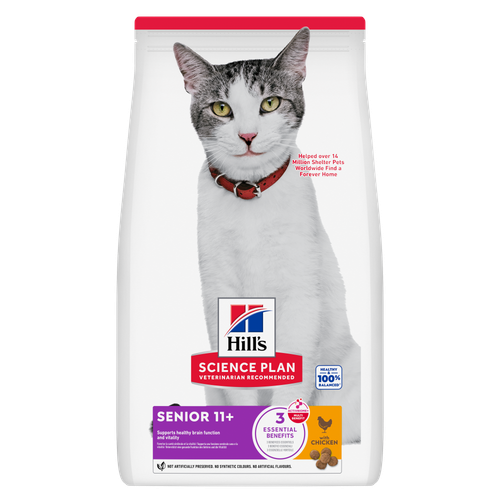
Hill's Science Plan Senior Cat Food with Chicken is a complete pet food, specially formulated with ActivBiome+ Multi-Benefit Technology.
This food supports healthy aging during the golden years. Contains a special ingredient blend to help keep older cats agile, more alert & interactive.

Hill's Science Plan Urinary Health Adult Cat Food with Chicken supports the health of the whole urinary system. Suitable for sterilised cats.
Related articles
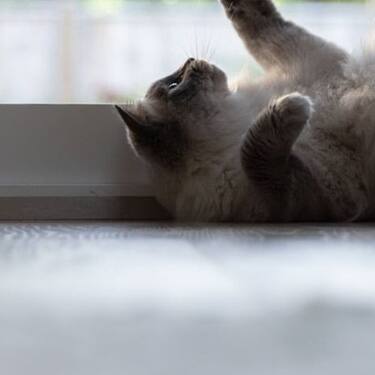
Feeding time can be a wonderful bonding opportunity for you and your cat. Find out how to make the most of it and create a healthy habit with HIll's Pet UK.
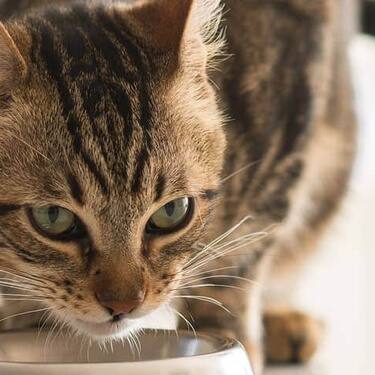
Discover what you can do to spot and support a sensitive cat stomach. See what routines and food you can implement to help your cat be happy and healthy.
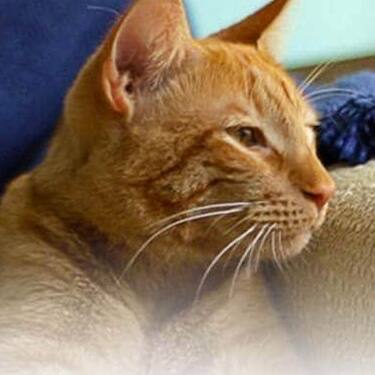
Find the right Hill
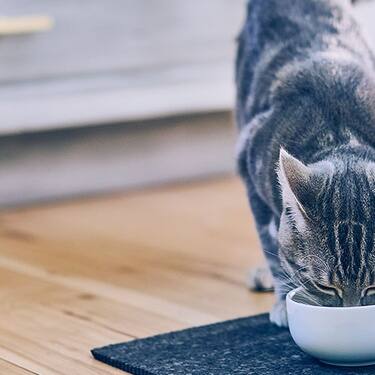
Good nutrition is about the right balance of nutrients. Learn more about health issues when feeding a cat food that has an improper nutritional balance from your friends at Hills Pet Nutrition.

Put your cat on a diet without them knowing
Our low calorie formula helps you control your cat's weight. It's packed with high-quality protein for building lean muscles, and made with purposeful ingredients for a flavourful, nutritious meal. Clinically proven antioxidants, Vitamin C+E, help promote a healthy immune system.
Put your cat on a diet without them knowing
Our low calorie formula helps you control your cat's weight. It's packed with high-quality protein for building lean muscles, and made with purposeful ingredients for a flavourful, nutritious meal. Clinically proven antioxidants, Vitamin C+E, help promote a healthy immune system.

